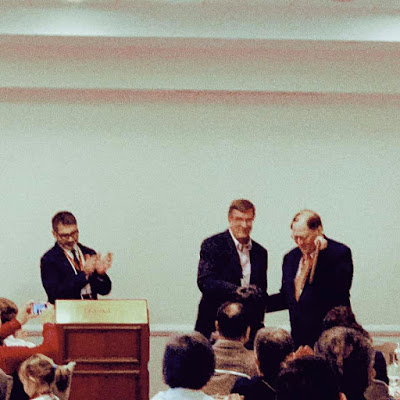Ritual and prestige among the Institutionalists Jamie got the Veblen-Commons award, something his father received back in 1976. I introduced him, and as expected discussed a bit his contributions to economics, and the understanding of institutions. His most important contributions are on the field of inequality, and the work he has done with the University of Texas Inequality Project (UTIP).There are many contributions that Jamie and UTIP have made. His use of the UNIDO payroll data, that he noted in his Godley-Tobin Lecture, has significant advantages over tax records and household survey data, and provides a different picture of global inequality. His use of the Theil decomposition is also original and provides new insights on inequality. And there is the more important
Topics:
Matias Vernengo considers the following as important: commons, Galbraith, Heterodox Economics, Institutionalism, Predator State, Veblen
This could be interesting, too:
Matias Vernengo writes What is heterodox economics?
Matias Vernengo writes Paul Davidson (1930-2024) and Post Keynesian Economics
Matias Vernengo writes More on the possibility and risks of a recession
Merijn T. Knibbe writes The Commons of Ameland: An Uncommon History.
Jamie got the Veblen-Commons award, something his father received back in 1976. I introduced him, and as expected discussed a bit his contributions to economics, and the understanding of institutions. His most important contributions are on the field of inequality, and the work he has done with the University of Texas Inequality Project (UTIP).
There are many contributions that Jamie and UTIP have made. His use of the UNIDO payroll data, that he noted in his Godley-Tobin Lecture, has significant advantages over tax records and household survey data, and provides a different picture of global inequality. His use of the Theil decomposition is also original and provides new insights on inequality. And there is the more important contribution, his preoccupation with the macro-foundations of distribution theory.
I suggested, however, that perhaps his most provocative contribution to the understanding of economics and the evolution of institutions is in his notion of the Predator State, that in which private interest has taken over the commanding heights to promote the looting of what is left of the New Deal and Great Society project. This notion harks back to his father's famous trilogy -- American Capitalism, The Affluent Society and The New Industrial State (NIS), in particular the latter.
The evolution of of the bureaucratic state that was disappearing as his father wrote about it -- NIS was published in 1967 -- and its transformation into a predatory machine of the elites is central to understand inequality.

